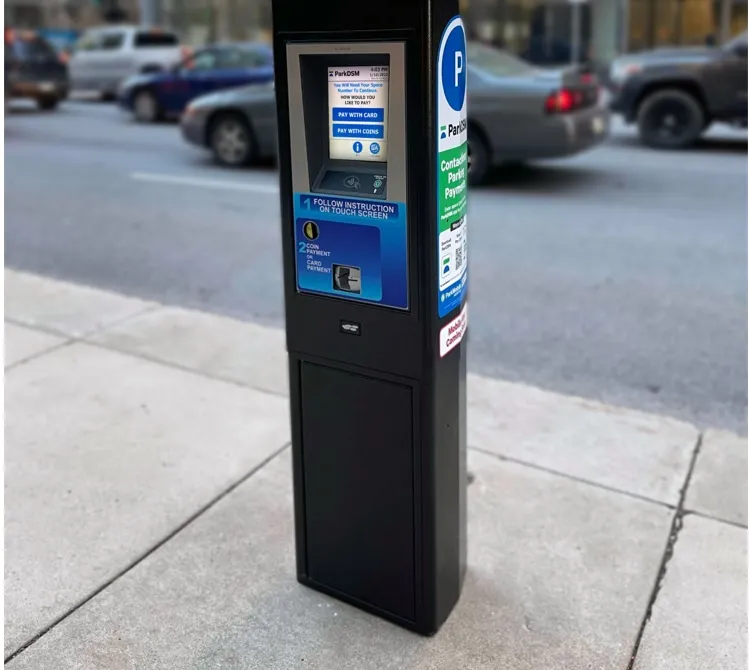Parking systems provider APT Skidata has completed a major new contract to provide Cambridge City Council in the UK with a wide range of parking, car park management and people access management technologies.
The company will provide both the parking facility hardware, which includes its state-of-the-art barriers and payment stations, and all of the associated software that enables parking facilities to integrate directly with retailers’ promotions and maximise city events and other initiatives.
October 8, 2015
Read time: 2 mins
Parking systems provider 1774 APT Skidata has completed a major new contract to provide Cambridge City Council in the UK with a wide range of parking, car park management and people access management technologies.
The company will provide both the parking facility hardware, which includes its state-of-the-art barriers and payment stations, and all of the associated software that enables parking facilities to integrate directly with retailers’ promotions and maximise city events and other initiatives.
The initial provision is for the Grand Arcade multi-storey car park, where ten payment machines and 12 barriers have been installed. The next stages of the project could include Cambridge’s other four multi-storey car parks, which when installation is complete, will provide a single networked and centralised car park management solution.
The system enables the council to take full advantage of APT Skidata’s integration technology to provide a future proof system that would enable it to work in partnership with retailers, businesses and event organisers in the city. APT Skidata’s technology enables consumers to book and pay for parking; future upgrades could incorporate the purchase of refreshments, or booking event tickets and hotel rooms.
The council is also considering automatic number plate recognition (ANPR) technology, bar code and QR to mobile phone data so that visitors can pre-book activities and have the option of either printing tickets at home or saving these directly to electronic devices, whilst maintaining an efficient access system.
The company will provide both the parking facility hardware, which includes its state-of-the-art barriers and payment stations, and all of the associated software that enables parking facilities to integrate directly with retailers’ promotions and maximise city events and other initiatives.
The initial provision is for the Grand Arcade multi-storey car park, where ten payment machines and 12 barriers have been installed. The next stages of the project could include Cambridge’s other four multi-storey car parks, which when installation is complete, will provide a single networked and centralised car park management solution.
The system enables the council to take full advantage of APT Skidata’s integration technology to provide a future proof system that would enable it to work in partnership with retailers, businesses and event organisers in the city. APT Skidata’s technology enables consumers to book and pay for parking; future upgrades could incorporate the purchase of refreshments, or booking event tickets and hotel rooms.
The council is also considering automatic number plate recognition (ANPR) technology, bar code and QR to mobile phone data so that visitors can pre-book activities and have the option of either printing tickets at home or saving these directly to electronic devices, whilst maintaining an efficient access system.










